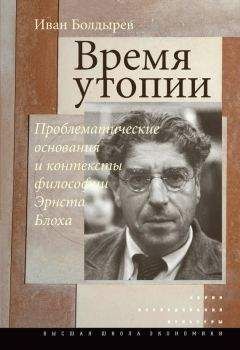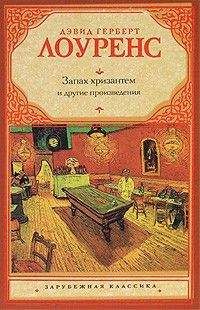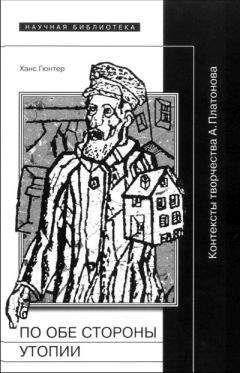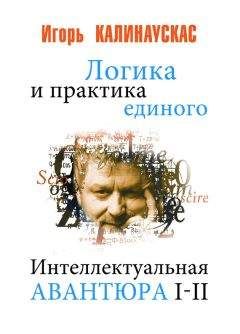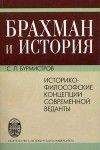Дэвид Лоуренс - Английский с Дэвидом Г. Лоуренсом. Тень в розовом саду / D. H. Lawrence. The Shadow in the Rose Garden
“Oh, well,” she said, “you’ll come again, won’t you (ну хорошо, – сказала она, – вы ведь придете снова, правда)? Do come again (приходите же).”
I promised (я обещал).
“Must you go?” she asked, rising and coming near to me, standing in front of me, twisting her head sideways and looking up at me. “Can’t you stop a bit longer? We can all be cosy today, there’s nothing to do outdoors.” And she laughed, showing her teeth oddly. She had a long chin.
I said I must go. The peacock uncoiled and coiled again his long blue neck as he lay on the hearth. Maggie still stood close in front of me, so that I was acutely aware of my waistcoat buttons.
“Oh, well,” she said, “you’ll come again, won’t you? Do come again.”
I promised.
“Come to tea one day – yes, do (приходите на чай когда-нибудь: «в один день»… да, приходите)!”
I promised – one day (я обещал – когда-нибудь).
The moment I was out of her presence I ceased utterly to exist for her (в тот миг, как я ушел от нее: «вышел из ее присутствия», я перестал существовать для нее) – as utterly as I ceased to exist for Joey (так же полностью, как перестал существовать для Джоуи). With her curious abstractedness she forgot me again immediately (со своей удивительной рассеянностью она тотчас меня забыла). I knew it as I left her (я знал это, уходя от нее). Yet she seemed almost in physical contact with me while I was with her (и все же она казалась почти в физическом контакте со мной, пока я был с ней = и все же я ощущал ее почти физически, когда мы стояли рядом).
The sky was all pallid again, yellowish (небо снова стало совсем бледным, желтоватым; pallid – /мертвенно-/бледный). When I went out there was no sun (когда я вышел, солнца не было); the snow was blue and cold (снег был голубой и холодный). I hurried away down the hill, musing on Maggie (я поспешно спускался с холма, думая о Мэгги; to hurry away – спешно уезжать, уходить; to muse – находиться в задумчивости; размышлять). The road made a loop down the sharp face of the slope (дорога делала петлю, уходя вниз по крутому склону).
“Come to tea one day – yes, do!”
I promised – one day.
The moment I was out of her presence I ceased utterly to exist for her – as utterly as I ceased to exist for Joey. With her curious abstractedness she forgot me again immediately. I knew it as I left her. Yet she seemed almost in physical contact with me while I was with her.
The sky was all pallid again, yellowish. When I went out there was no sun; the snow was blue and cold. I hurried away down the hill, musing on Maggie. The road made a loop down the sharp face of the slope.
As I went crunching over the laborious snow I became aware of a figure (тяжело пробираясь по хрустящему снегу, я заметил фигуру; to crunch – грызть с хрустом; скрипеть, хрустеть /под ногами, колесами/; laborious – трудный; напряженный, утомительный) striding awkwardly down the steep scarp to intercept me (шагавшую неуклюже по крутому откосу, чтобы перехватить меня; to stride – шагать большими шагами). It was a man with his hands in front of him, half stuck in his breeches pockets (это был мужчина, державший руки перед собой, наполовину засунутыми в карманы бриджей), and his shoulders square – a real knock-about fellow (с квадратными плечами – настоящий рабочий парень; knock-about – шумный, грубый /о зрелище/; бродячий; рабочий /об одежде/). Alfred, of course (Альфред, конечно). He waited for me by the stone fence (он подождал меня у каменной ограды).
“Excuse me,” he said as I came up (извините = можно вас на минутку, – сказал он, когда я подошел).
I came to a halt in front of him and looked into his sullen blue eyes (я остановился перед ним и заглянул в его голубые глаза; halt – остановка). He had a certain odd haughtiness on his brows (у него было некоторое странное высокомерие на бровях = брови были подняты в каком-то странном высокомерии; certain – определенный; некоторый; odd – нечетный; странный, необычный). But his blue eyes stared insolently at me (а его голубые глаза пристально и нагло глядели на меня).
As I went crunching over the laborious snow I became aware of a figure striding awkwardly down the steep scarp to intercept me. It was a man with his hands in front of him, half stuck in his breeches pockets, and his shoulders square – a real knock-about fellow. Alfred, of course. He waited for me by the stone fence.
“Excuse me,” he said as I came up.
I came to a halt in front of him and looked into his sullen blue eyes. He had a certain odd haughtiness on his brows. But his blue eyes stared insolently at me.
“Do you know anything about a letter – in French (вы что-нибудь знаете о письме… на французском…) – that my wife opened – a letter of mine (которое вскрыла моя жена… письме для меня)?”
“Yes,” said I. “She asked me to read it to her (она попросила меня прочесть его ей).”
He looked square at me (он смотрел прямо на меня; square – прямо; как раз, непосредственно). He did not know exactly how to feel (он точно не знал, что думать; to feel – осязать; чувствовать, ощущать; полагать, считать).
“What was there in it?” he asked (что в нем было? – спросил он).
“Why (а что)?” I said. “Don’t you know (разве вы не знаете)?”
“She makes out she’s burnt it (она уверяет, что сожгла его; to make out – разобрать, увидеть; понять, разобраться; утверждать, стараться доказать; to burn – гореть; сжигать),” he said.
“Without showing it you?” I asked (не показав его вам? – спросил я).
He nodded slightly (он слегка кивнул).
“Do you know anything about a letter – in French – that my wife opened – a letter of mine?”
“Yes,” said I. “She asked me to read it to her.”
He looked square at me. He did not know exactly how to feel.
“What was there in it?” he asked.
“Why?” I said. “Don’t you know?”
“She makes out she’s burnt it,” he said.
“Without showing it you?” I asked.
He nodded slightly.
He seemed to be meditating as to what line of action he should take (он, казалось, раздумывал над тем, какую линию поведения избрать). He wanted to know the contents of the letter: he must know (он желал знать содержание письма; он должен знать): and therefore he must ask me, for evidently his wife had taunted him (и поэтому должен спросить меня, поскольку, очевидно, его жена отделалась от него колкостями; to taunt – насмехаться; говорить колкости; дразнить). At the same time, no doubt (в то же время, без сомнения), he would like to wreak untold vengeance on my unfortunate person (он хотел бы излить невысказанную месть на мою несчастную персону; to wreak – давать выход, волю /чувству, особ. злобному/; unfortunate – несчастный, несчастливый; fortune – счастье; удача). So he eyed me, and I eyed him, and neither of us spoke (поэтому он не спускал с меня глаз, а я – с него, и ни один из нас не говорил; to eye – разглядывать, рассматривать; следить). He did not want to repeat his request to me (он не желал повторять свою просьбу ко мне). And yet I only looked at him, and considered (однако я только смотрел на него и размышлял).
Suddenly he threw back his head and glanced down the valley (вдруг он запрокинул голову и мельком взглянул на долину). Then he changed his position and he looked at me more confidentially (потом изменил положение и посмотрел на меня более доверительно; confidential – конфиденциальный; доверительный; пользующийся доверием).
“She burnt the blasted thing before I saw it (она сожгла проклятое письмо прежде, чем я его увидел; blasted – разрушенный /действием природных сил/; /разг./ проклятый, чертов; to blast – взрывать; губить; ругать, проклинать),” he said.
He seemed to be meditating as to what line of action he should take. He wanted to know the contents of the letter: he must know: and therefore he must ask me, for evidently his wife had taunted him. At the same time, no doubt, he would like to wreak untold vengeance on my unfortunate person. So he eyed me, and I eyed him, and neither of us spoke. He did not want to repeat his request to me. And yet I only looked at him, and considered.
Suddenly he threw back his head and glanced down the valley. Then he changed his position and he looked at me more confidentially.
“She burnt the blasted thing before I saw it,” he said.
“Well,” I answered slowly (что ж, – медленно ответил я), “she doesn’t know herself what was in it (она сама не знает, что в нем было).”
He continued to watch me narrowly (он продолжал пристально следить за мной; narrowly – узко; пристально; narrow – узкий; тесный; тщательный, подробный). I grinned to myself (я ухмыльнулся про себя).
“I didn’t like to read her out what there was in it,” I continued (мне не хотелось зачитывать ей то, что там было, – продолжал я; to read out – читать вслух).
He suddenly flushed out so that the veins in his neck stood out, and he stirred again uncomfortably (внезапно он залился краской так, что вены на его шее выступили, и снова неловко пошевелился).
“The Belgian girl said her baby had been born a week ago (бельгийская девушка говорила, что ее ребенок родился неделю назад), and that they were going to call it Alfred,” I told him (и что они собираются назвать его Альфредом, – сообщил я ему).
He met my eyes (он встретил мой взгляд). I was grinning (я ухмылялся). He began to grin, too (он тоже начал ухмыляться).
“Good luck to her,” he said (удачи ей, – сказал он; luck – фортуна, судьба; везение; счастье, удача).
“Well,” I answered slowly, “she doesn’t know herself what was in it.”
He continued to watch me narrowly. I grinned to myself.
“I didn’t like to read her out what there was in it,” I continued.
He suddenly flushed out so that the veins in his neck stood out, and he stirred again uncomfortably.
“The Belgian girl said her baby had been born a week ago, and that they were going to call it Alfred,” I told him.
He met my eyes. I was grinning. He began to grin, too.
“Good luck to her,” he said.
“Best of luck (всего наилучшего),” said I.
“And what did you tell her?” he asked (и что вы ей сказали? – спросил он).
“That the baby belonged to the old mother – that it was brother to your girl (что ребенок принадлежит старой матери – что это брат вашей девушки), who was writing to you as a friend of the family (которая пишет вам как другу семьи).”
